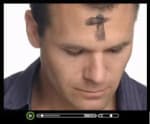Ash Wednesday and Lent
Ash Wednesday and Lent – What is it?
Ash Wednesday marks the first day of Lent, a season of fasting that ends at sundown on Holy Thursday. The date of Ash Wednesday depends on the date of Easter (How is the date for Easter determined?). The day is traditionally observed by Roman Catholics, Orthodox Churches, Episcopalians, Anglicans, and a few Protestant denominations, although each church and individual observes different traditions. For this article, we will be focusing on the Roman Catholic traditions.
The day is named after the practice of placing ashes on the forehead. The ashes used in this ritual are typically the burned palm branches of the previous year’s Palm Sunday. The ashes are prepared and blessed in accordance with liturgical tradition. Then a priest or clergy marks congregant’s foreheads with ashes, often in the shape of a cross. The priest or clergy then says, “Remember that thou art dust, and to dust you shalt return” or “Turn away from sin and be faithful to the Gospel.”
Ash Wednesday is the beginning of the 40-day observance of Lent, “a season of self-examination, fasting and penance in preparation for our Easter Day observance.”1
Ash Wednesday and Lent – Biblical Support
The Bible does not mention Ash Wednesday and Lent. The traditional purpose of lent is penitential preparation, which means “feeling regret for one’s sins; repentant.” During the weeks between Ash Wednesday and Lent, observers of Lent give up a luxury as form of penance.
The Gospels tell us that Jesus spent 40 days of fasting in the desert (Matthew 4:1-11, Mark 1:12-13, Luke 4:1-13). The Holy Spirit led Jesus into the desert to be tempted by Satan in order to show us that temptation doesn’t need to end in failure. Moses (Exodus 34:28) and Elijah (1 Kings 19) also fasted for 40-day periods.
Ashes were used in biblical times as symbols of repentance and mourning (Genesis 18:27; 2 Samuel 13:19; Esther 4:1; Job 2:8; Daniel 9:3; Matthew 11:21).
Ash Wednesday and Lent – What Protestants can learn.
Although many Protestants do not observe Ash Wednesday or Lent, we can learn from the concepts of them and implement the some points into our lives. Here are some suggestions:
-
Prepare your heart and mind to celebrate the death and resurrection of your Savior. In the weeks leading up to Easter, take extra time to remember what Jesus did for you. Set aside time to become closer in your relationship with Him. Don’t do it as an obligation; do it out of your love for your Savior.
-
Be aware of sin and repent of it. Sin is not to be taken lightly or brushed off. Take time for self-reflection and listen as the Holy Spirit convicts you of sin in your life. Ephesians 1:7 says, “In him we have redemption through his blood, the forgiveness of sins, in accordance with the riches of God’s grace.”
-
Practice biblical fasting and prayer. The Bible does not command us to fast, but it does present fasting as a good and profitable practice. There is a biblical connection between fasting and prayer—the purpose of fasting is to take your eyes off the things of this world and focus completely on God. Fasting helps us gain a new perspective.
In the Bible, fasting was almost always a fast from food, although anything can be given up temporarily in order to give more focus to God. We encourage you to take time to fast from food for a set time (for example, for one meal each week or for 24-hours each week). Instead of eating, spend that time studying God’s Word, praying, and worshiping. Fasting changes us. It is not a punishment or a form of penance. It is about our focus on God. -
Have a biblical understanding of God’s grace. For Roman Catholics, Ash Wednesday is focused on penance, the act of devotion that is designed to show they are sorry for and repent of their sin. Penance is a sacrament of the Roman Catholic Church and is often referred to a “doing penance” to atone for sin. The person first confesses his or her sin to a priest and then receives instructions on what to do in order to atone for the sin. For example, penance may be to pray certain prayers, fast, or spend time at the altar.
The act of penance is very difficult to prove in Scripture. Nowhere does the Bible teach that performing certain works or punishing oneself for sin will make restitution for sin. However, the Bible does teach repentance. We are called to have a change of mind and a change in attitude toward God. It is not our works that make us right with God, but instead it is blood of Jesus Christ that makes atonement for our sin.
Hebrews 9:14 says, “How much more, then, will the blood of Christ, who through the eternal Spirit offered himself unblemished to God, cleanse our consciences from acts that lead to death, so that we may serve the living God!”
1 John 1:7 says, “But if we walk in the light, as he is in the light, we have fellowship with one another, and the blood of Jesus, his Son, purifies us from all sin.”
Since we are saved by the blood of Jesus, there is no need for guilt, shame, or penance. God does want our repentance! The Bible is very clear that true repentance will result in a change of actions (Luke 3:8-14; Acts 3:19). Acts 26:20 declares, “I preached that they should repent and turn to God and prove their repentance by their deeds.” The full biblical definition of repentance is a change of mind that results in a change of action. During this Lent season, focus on God’s grace and how you are saved through the blood of Jesus.
What is your response?



